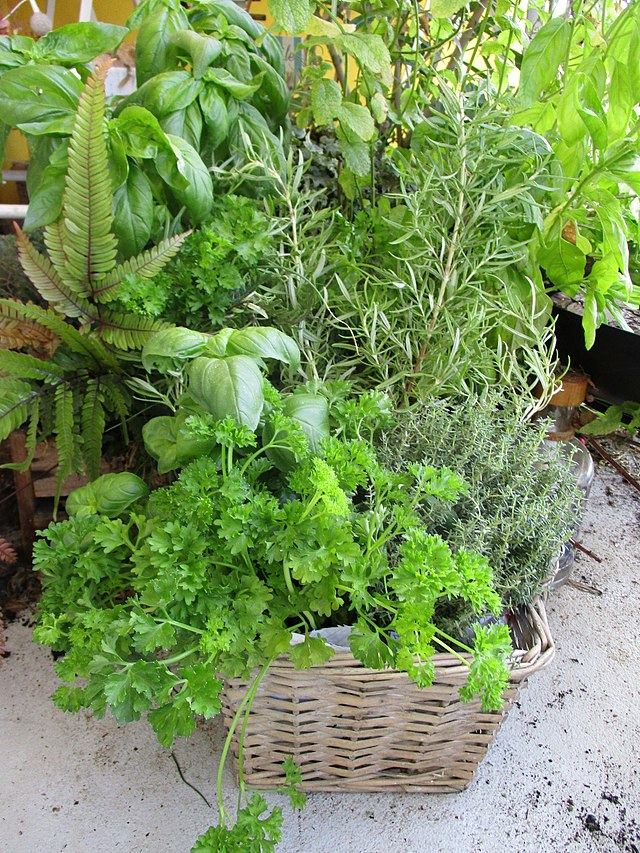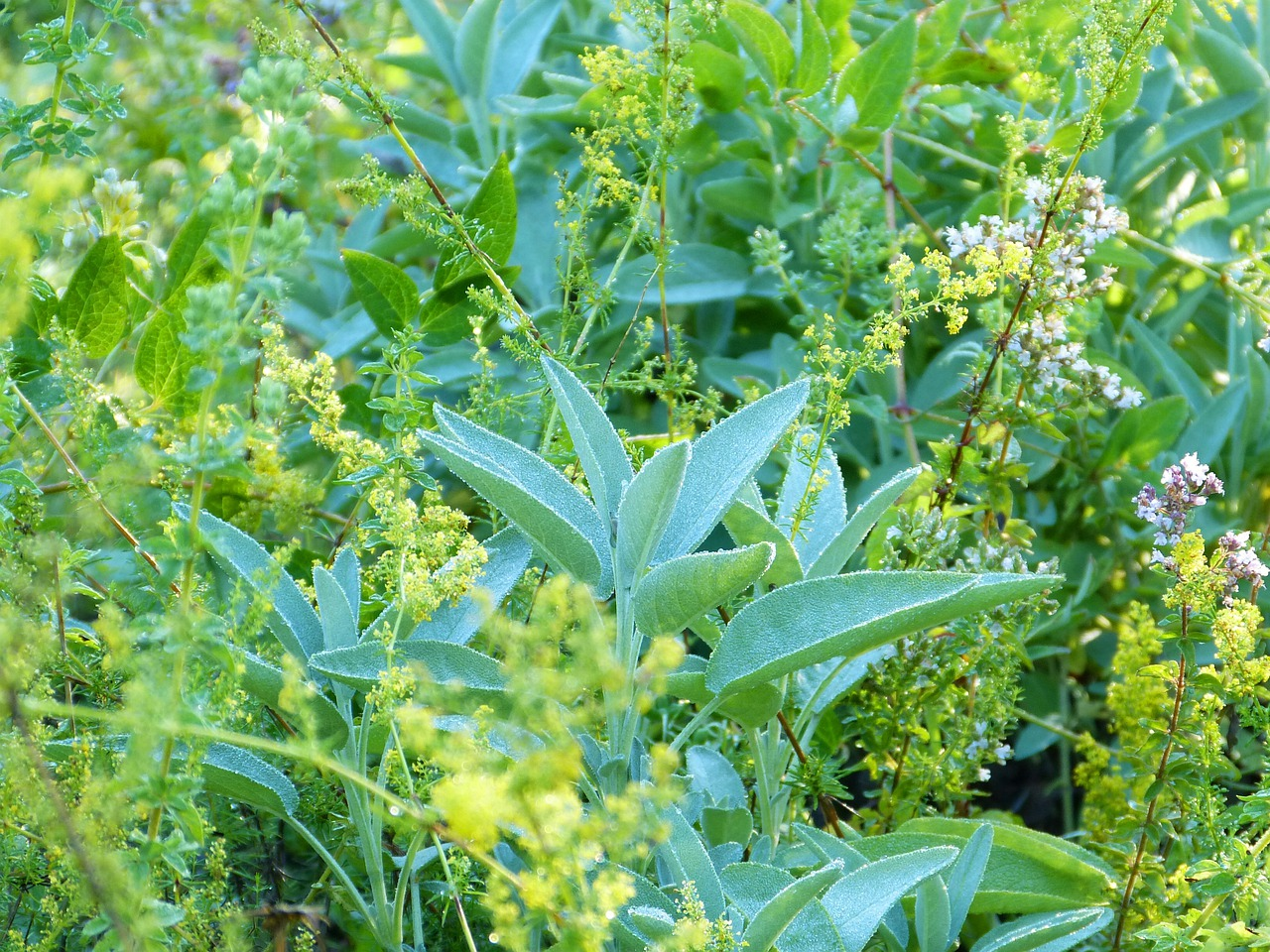Mixed herb culture
Which herbs go well together?
To ensure that your herbs grow well in a bed or balcony box, you should pay attention to which plant partners you put together. This is because not all herbs get on well together. This is why you will get particularly healthy and large aromatic plants if you follow certain rules of mixed herb cultivation. I would like to introduce these to you here. You will also find a table with the most important herb combinations.
Why mixed cultivation in the herb bed?
Creating a mixed crop (such as the milpa bed) can be beneficial for more than just vegetables. This principle can also be used for herbs. Here are a few reasons why mixed cultivation in a herb bed or balcony box is a good idea:
- Avoidance of competition for nutrients: due to different nutrient requirements of the herbs for the soil, there is less competition between the neighbors. This means that the neighboring plants can be optimally supplied.
- Similar site requirements: Herbs with similar light or soil requirements can be planted together in the “ideal” spot. Some herbs prefer a brighter spot, others a shadier one. Still others prefer a lot of moisture while others like it rather dry.
- Pest defense: Some herbs excrete substances via their leaves or roots that keep pests from other herbs away.
- Attracting beneficial insects: Certain herbs attract beneficial insects, which destroy potential pests of their neighboring herbs.
- Different space requirements: To ensure that none of the planting partners are cramped, the neighbors should have different growth forms. This applies both above and below ground. It therefore makes sense to plant deep-rooted and shallow-rooted herbs next to each other. That way they don't steal each other's root space and nutrients. However, herbs with sprawling foliage combined with herbs with a more compact growth habit also feel at home next to each other.
- Do not mix annual and perennial herbs. Annual herbs must be sown or planted every year. To avoid damaging the roots of perennial herbs, it is advisable to plant annual and perennial herbs separately. If you grow your herbs in a balcony box or raised bed, you can make your own herb soil. You can find out how to do this in our article on the subject!
Loner in the herb bed

Some plants need a lot of space and don't like anyone getting too close to them. This applies to vegetables, but also to herbs. This is partly due to their need for space and partly because they inhibit the growth of other plants around them (allelopathy). You should plant these herbs without direct neighbors:
- wormwood
- lovage
- angelica
Which herbs go together? - Table

In the table in our main article you will find all the beneficial combinations of herbs. It also shows which neighborhoods you should avoid in the herb bed. Simply click on the “Learn more” field at the bottom of the page
Herb-vegetable mixed culture
Of course, you can not only grow herbs separately in a herb bed. They can also be wonderfully integrated into your vegetable patch. In the spirit of mixed cultivation, herbs can also keep pests and diseases away or attract beneficial insects with their scent. Herbs can also improve the growth and taste of vegetables. You can find out more about this in our large mixed cultivation article in the subsection “Effect of herbs in mixed cultivation”.
silviarita on pixabay

